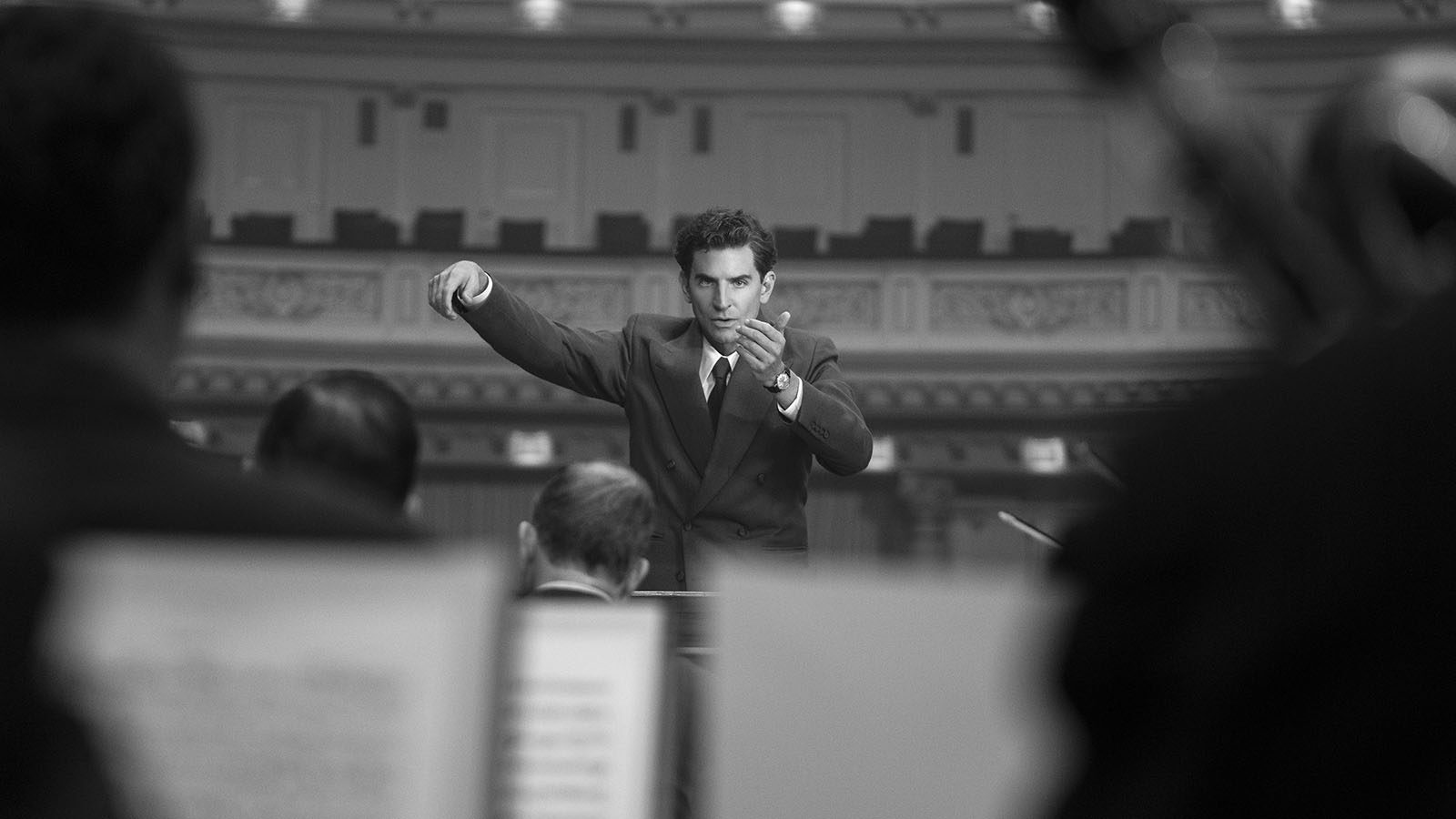The long-awaited follow up to the matinee idol turned auteur Bradley Cooper’s 2018 remake of A Star is Born doubles down on the Old Hollywood formalism, storybook romance, and mid-century morality that marked his brilliant debut. Schnoz schtick aside, Cooper’s Maestro revisits the familiar territory of that first effort, charting the public success and private woes of renowned 20th-century conductor, composer, and bisexual icon Leonard Bernstein.
With a Netflix budget and a benediction from the Bernstein estate, Cooper and co-writer Josh Singer’s ambitious screenplay wastes no time in establishing the starpower of its subject. Maestro introduces us to Cooper-as-Bernstein in musica res, dolefully tinkling the ivories in a moment of quiet reflection, before cannily revealing a bank of cameras and lights parked in his Connecticut living room. Tanned, white-haired, and handsome, an ever-present cigarette smoldering in a nearby ashtray, he could be sitting for a swanning profile in Better Homes and Gardens. But the deep reservoir of sadness behind those sparkling, still-young eyes belies a deeper, sweeping tale.
After act one’s dizzying rise to fame, full of expert exposition and composite shots, Maestro settles into the meat of its story: the often tender, occasionally tragic, and unmistakably complicated marriage of Leonard and Felicia Bernstein. It’s love at first sight—for the camera, the audience and, above all, Lenny—when Carey Mulligan makes her coy entrance at a 1943 party of grown-up theater kids. Like her husband-to-be, Felicia Montealegre arrived in New York City with a newly crafted persona and grand artistic ambitions. Unfortunately, Cooper and Singer reserve precious little screen time for the future Mrs. Bernstein’s achievements. Her modest success on Broadway and her steady starring roles in TV’s nascent days are swiftly explained away during yet another living-room interview—this one after a time jump into the straight-laced 1950s—in which Felicia demurely recounts the wifely and motherly duties that have since taken precedence.
Felicia’s progressive attitude toward her husband’s sexuality is tested not by his infidelities (if you can call them that), but by his unsubtle desire for constant adoration—from young protégés and philharmonic audiences alike. As the Bernsteins’ marriage begins to fissure, Cooper embraces the ambiguity of its inevitable decline. If Maestro is to be believed, Felicia’s raison d’etre was the supervision and management of the Bernstein brand. Leonard’s mounting social and professional commitments perennially leave Felicia holding the family bag, maintaining their Manhattan penthouse and Connecticut country home while hubby zigzags, unfettered, through decades of social change.
Cooper and Singer conveniently gloss over Felicia’s social activism with the New York Civil Liberties Union, and her philanthropic support of the Black Panther Party scarcely warrants a mention. Instead, Mulligan is shoehorned into that too-familiar Hollywood trope: the faithful spouse, driven to wits’ end by the public ownership of her husband’s talent and persona. We’re treated to a glimmer of hope following their split, as Felicia returns to work on a televised variety program, but that victory is short-lived. The foundational tragedy here is not the bespoiled marriage bed, nor Felicia’s eventual fate as a woman wronged, but the increasing sublimation of her identity—as emigree, actress, and New York society doyenne—into the rich but narrow role of Mrs. Bernstein.
Maestro screens this afternoon and tomorrow, October 13 and 14, at the New York Film Festival, following its North American premiere last week.



